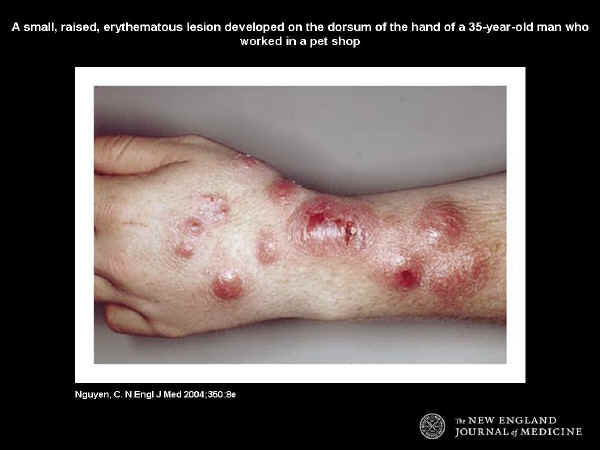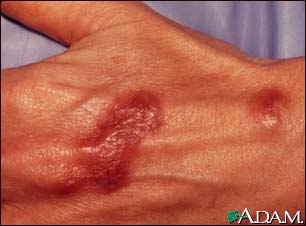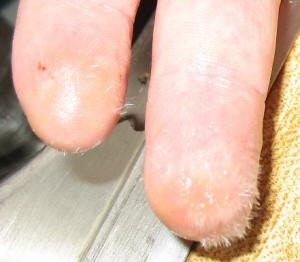

|
|
|
#1
|
|||
|
|||
|
Coral Toxicity (Beginners be sure to read)
Coral Toxicity
by Jared Waites Welcome beginner coral enthusiasts! This thread was created, because I had been thinking of the safety of others for once, instead of myself  I have a couple of pointers to point out, that might save your life or keep you from becoming ill when your playing with your reef. You might think, how is my life endangered when I play with my tank? There are a lot of ways to die or be injured from playing with our tanks, electrocution, cut fingers instead of cutting corals, but being poisoned? Is this possible with the reef? If your asking that question in your head, your dang skippy. Because Zoanthids, contain one of the worlds most deadliest toxins called, Palytoxin. Remember, all Zoathids carry Palytoxin, some more then others. 1. When handling Zoanthids (Zoo's, Zoanthus, Zoanthidae, Palythoa, etc.), handle them as few times as you can when fragging them, as they will shed slime in defense of you handling them and cutting at them. This slime contains the same powerful neurotoxin as I mentioned above. 2. ALWAYS wear gloves, NO MATTER WHO DOESN'T WEAR THEM, you remember to ALWAYS wear them because a lot of people are injured and get sick from not wearing them. Cuts on your hand make you even more vulnerable to being exposed to the toxin. Just because you don't get sick this time, or haven't in the past...that's just because the variables haven't been right. 3. Wash your hands when your finished, even if you wore gloves. 4. Keep kids and pets away while your fragging, and never let them handle corals. 5. Sometimes small Nudibranchs (sea slugs) are on Zoanthids. Do not attempt to remove them by hand, because you'll most likely end up being exposed to the toxin. From reports across the web, they are claiming that the Nudibranchs toxins are Palytoxin, that it gets from the Zoanthids...except that its MUCH more concentrated. So refrain from mushing them on the glass to kill them, and just wear gloves, and use a pair of pliers to remove them. 6. NEVER put your hands in your aquarium with open sores, chapped hands, or cuts. 7. If you have some goggles available, I suggest wearing them as well...Zoanthids have been known to 'squirt' when handled out of water for propagation. Children particularly would be at risk to this toxin, so please beware, its not just harming pets, its harming humans as well. Although not having any Zoanthids in your tank doesn't mean you shouldn't wear gloves. Cuts from liverock and other corals can cause SEVERE bacterial infections which are life threatening...and could call for possible amputation. Not to mention bristle worms, which cause a nasty sting when handled, especially the larger ones. Lets get back to the Zoathids and the Zoa eating Nudibranches. The quickest way to get rid of something sliding on the glass is by smashing it. Well if you happen to do this to a Zoanthid Eating Nudi, the concentrated Palytoxin contained inside will be released and could find its way into your bloodstream. There are a few articles here on Reef Central where this has happened. http://archive.reefcentral.com/forum...hreadid=158663 Quote:
Quote:
So to summarize this article in one quick sentence, I would have to say: Wear gloves while handling liverock and any Palythoa or Zoanthids. Now for the pictures!  Some bacterial infection pictures from cuts. The particular infection was caused by Mycobacterium Marinum   Bristle worm sting, they call them Bristle worms for a reason   Hopefully these images will help you think twice before placing your hands in an aquarium without gloves!
__________________
Knowing something is having first hand experience - Me Having a high post count doesn't necessarily show intelligence or knowledge, it simply shows you just talk a lot. - Me Last edited by JaredWaites; 01/04/2008 at 12:50 PM. |
|
|